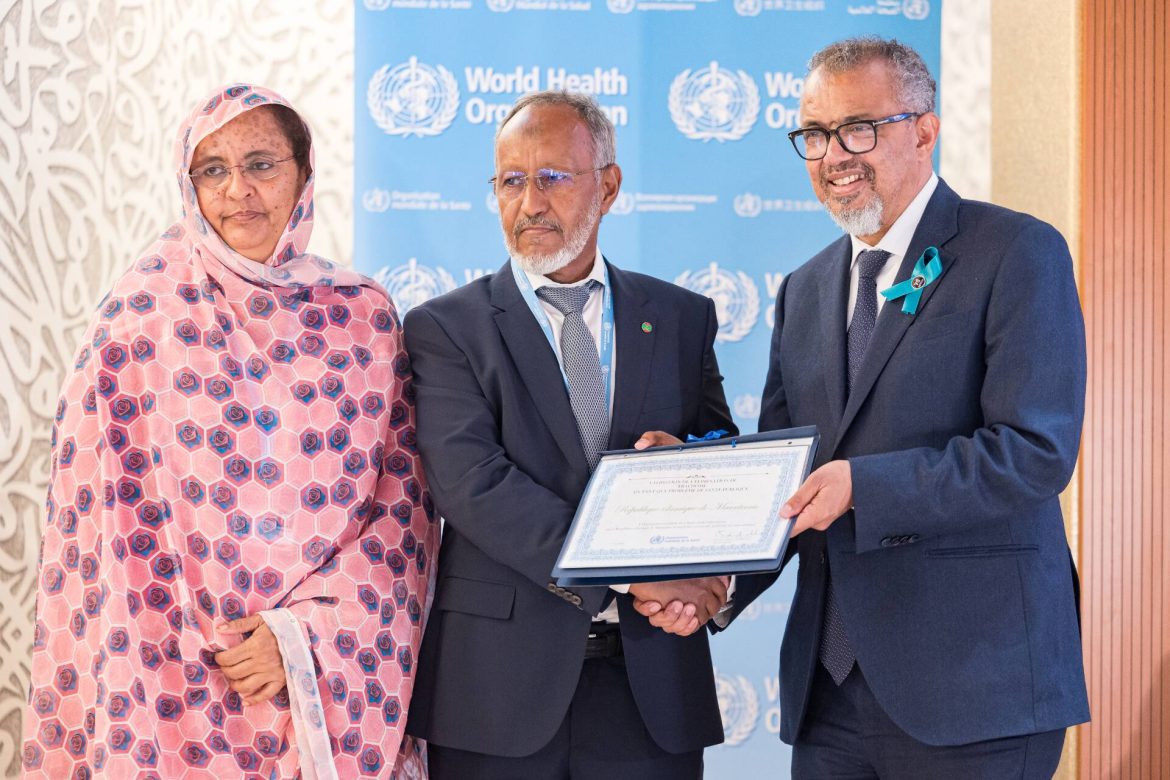By Haruna Gimba
Mauritania and Papua New Guinea have officially announced the elimination of trachoma, an eye disease responsible for most cases of infectious blindness in the world, as a public health problem.
This brings to 23 the number of countries that have eliminated trachoma, which is one of the neglected tropical diseases (NTDs), a group of parasitic, viral, fungal, and bacterial infections, that infect more than one billion people globally.
Africa is the most affected continent by the diseases, particularly in poor rural areas with water shortages and poor sanitation.
This is the first NTD eliminated by Papua New Guinea; and together with Mauritania was among 11 countries (Viet Nam, India, Timor-Leste, Pakistan, Brazil, Jordan, Chad, Guinea, Niger, Mauritania and Papua New Guinea) across the world that were recognised by the World Health Organization (WHO) for eliminating at least one NTD since the beginning of 2024.
At a high-level ceremony at the recent World Health Assembly in Geneva, Switzerland, WHO Director-General Dr Tedros Adhanom Ghebreyesus described it a ‘golden age of disease elimination.’
The fight against NTDs remains one of global health’s most significant success stories, unique in the unparalleled pace in sustained progress, incredible return on investment and concrete impact and end goal.
Efforts to reduce the burden of NTDs have played a key role in alleviating poverty, advancing education, promoting gender equity, and reducing inequalities in affected communities.
In Mauritania, efforts to eliminate trachoma spanned the public and private sector, across diverse government ministries, and involved the vital support and efforts of community health workers.
This also included Mauritania’s successful adaptation of the WHO’s Surgery, Antibiotics, Facial cleanliness, and Environmental improvements (SAFE) strategy which addresses both prevention and treatment.
Commenting on the elimination, the Interim Executive Director at Uniting to Combat Neglected Tropical Diseases, Dr Isatou Touray noted, “Elimination of trachoma in Mauritania and Papua New Guinea brings renewed hope to other endemic countries working towards eliminating the disease, and demonstrates what can truly be achieved with unwavering political commitment, long-term government leadership, and collective action.”
“It further showcases the incredible return on investment in NTD programmes, with their tangible and achievable elimination targets, that present finite and strategic opportunities for funding.
“Despite the challenges posed by global funding cuts, we must collectively seize this momentum and ensure sustained progress, so that we can achieve the WHO’s ambitious 2030 NTD elimination goals and ensure an Africa free from all NTDs.”
Papua New Guinea was also spotlighted during the WHO recognition for its remarkable achievement in eliminating the disease. Both countries join a growing list of nations demonstrating what is possible through sustained political will, country ownership, community engagement, and targeted health interventions.
These milestones come amid large-scale cuts to official development assistance (ODA), blurring the future of global disease elimination efforts.
At this year’s World Health Assembly (WHA78), world leaders gathered to address these challenges and explore critical solutions to secure adaptive and innovative financing solutions for NTDs.
In its Neglected Tropical Diseases Roadmap 2021-2030, the World Health Organization established 2030 as the target year for the global elimination of NTDs. These objective forms part of the wider efforts towards Universal Health Coverage, to ensure healthy lives and promote well-being and equity for all, at all ages.
About Uniting to Combat NTDs
Uniting to Combat Neglected Tropical Diseases (NTDs) is a global advocacy organisation that exists to end NTDs by mobilising resources in support of the WHO’s NTD road map and the UN’s Sustainable Development Goals (SDGs).
The organisation works with over 150 partners around the world to create the political will and to foster an enabling environment for change to collectively address the NTD crisis.




